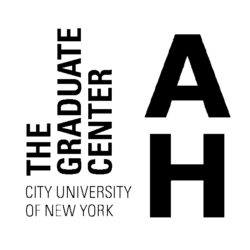Organized by the Department of Public Programs.
Room C201, 6:30-8:30pm
As an artist who has exhibited widely in museums and galleries worldwide, and as an influential media theorist, Hito Steyerl has had a major impact on how we understand the character of digital worlds—equally in terms of politics, economics, and aesthetics. In conversation with Graduate Center Distinguished Professor David Joselit, Steyerl will expand on her understanding of the political economy of images, or what she has called “poor images” or the “wretched of the screen.”
Seating will be limited so register now to reserve a spot!
Hito Steyerl is a filmmaker and writer. She teaches New Media Art at University of the Arts in Berlin. Steyerl studied film at the Academy of Visual Arts in Tokyo, the University of Television and Film in Munich, and holds a Ph.D in philosophy from the Academy of Fine Arts, Vienna. Steyerl’s work focuses on contemporary issues such as feminism and militarisation, as well as the mass proliferation and dissemination of images and knowledge brought on by digital technologies. Her work has been exhibited in numerous solo and group exhibitions including documenta 12, Taipei Biennial 2010, and 7th Shanghai Biennial, and her written essays have appeared in journals such as e-flux and eipcp.
David Joselit is Distinguished Professor of Art History at The Graduate Center, CUNY. His work has approached the history and theory of image circulation in the twentieth and twenty-first centuries from a variety of perspectives, spanning Marcel Duchamp’s strategy of the readymade, in which commodities are reframed as artworks, to the mid-twentieth ecology of television, video art, and media activism, and the current conditions of contemporary art under dual pressures of globalization and digitization. He is author of Infinite Regress: Marcel Duchamp 1910–1941 (MIT Press, 1998), American Art Since 1945 (Thames and Hudson, World of Art Series, 2003), Feedback: Television Against Democracy (MIT Press, 2007), and After Art (Princeton University Press, 2012).



